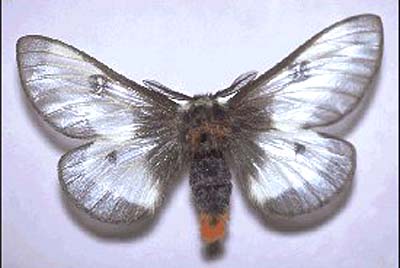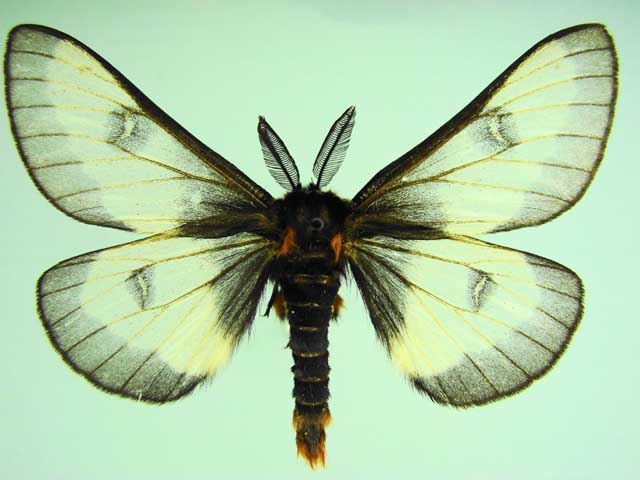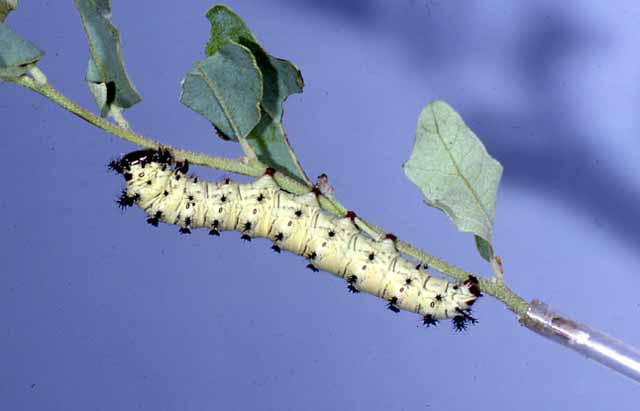Hemileuca slosseri
Hemileuca slosseri
Peigler & Stone, 1989

Hemileuca slosseri Photo by Paul Opler.
TAXONOMY:
Superfamily: Bombycoidea, Latreille, 1802
Family: Saturniidae, Boisduval, [1837] 1834
Subfamily: Hemileucinae, Grote & Robinson, 1866
Tribe: Hemileucini, Grote & Robinson, 1866
Genus: Hemileuca, Walker, 1855 |
MIDI MUSIC
"Someone to Watch Over Me"
copyright C. Odenkirk
ON.OFF
<bgsound src="watch.mid" LOOP=FOREVER>
|
DISTRIBUTION:
Slosser's Buckmoth,
Hemileuca slosseri (wingspan: males 52-59mm; females: 69-70mm)
flies on rolling sand plains in west
Texas, western Oklahoma, and southeastern New Mexico.

Hemileuca slosseri male, Hobbs, Lea County, New Mexico,
59 mm, November 4, 1994, courtesy/copyright Charles Bordelon and
Ed Knudson.
"Male abdomen is black with a red tip, female abdomen
is black and may have red bands, but not a red tip. Wings are
translucent. Upperside of wings is gray with narrow black borders
and black wing bases. Each wing has a wide white band and a small
eyespot. "
FLIGHT TIMES AND PREFERRED FOOD PLANTS:
This species
flies in November.
Oaks are the favorite host plants of the larvae.
ECLOSION, SCENTING AND MATING:
Adults emerge in the
early morning and mate between mid-morning and mid-afternoon.
Males use well developed antennae to track the female's pheromone
plume.
EGGS, LARVAE, COCOONS AND PUPAE:
Females lay eggs in
rings around host twigs in the late afternoon. The eggs overwinter
and hatch in April, and caterpillars feed together 1-2 feet off the
ground. Fully-grown caterpillars spin loose cocoons in leaf litter
under the host. Most of these will emerge as adults in the fall, but
some may delay emergence for up to 2 years.

Hemileuca slosseri, fourth instar, Mescalero Sands, New Mexico,
May 3, 1991, courtesy of Jim Tuttle.
Larval Food Plants
Listed below are primary food plant(s) and alternate food plants listed in Stephen E.
Stone's Foodplants of World Saturniidae. It is hoped that this
alphabetical listing followed by the common name of the foodplant will
prove useful. The list is not exhaustive. Experimenting with closely
related foodplants is worthwhile.
Return to Hemileuca Genus
Goto Canada - U. S. A. Index



